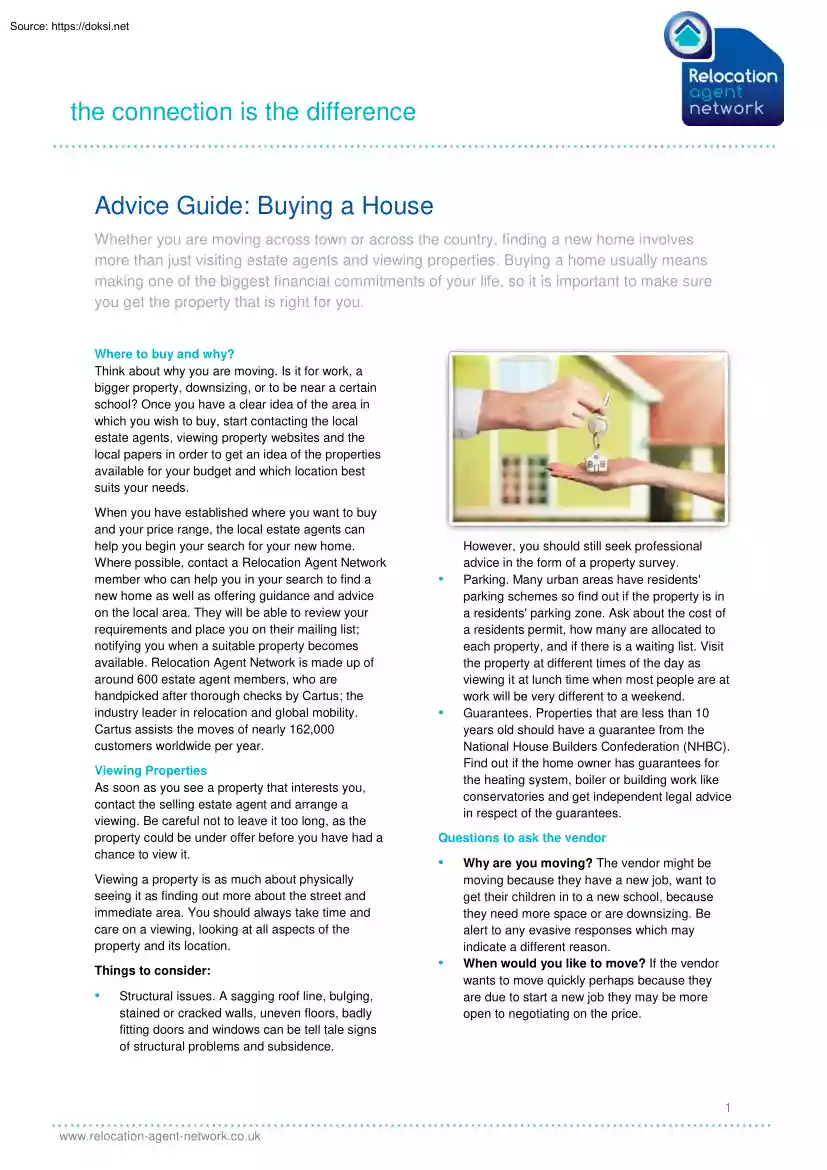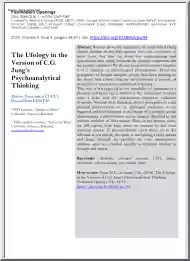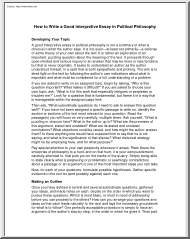Please log in to read this in our online viewer!

Please log in to read this in our online viewer!
No comments yet. You can be the first!
What did others read after this?
Content extract
the connection is the difference Advice Guide: Buying a House Whether you are moving across town or across the country, finding a new home involves more than just visiting estate agents and viewing properties. Buying a home usually means making one of the biggest financial commitments of your life, so it is important to make sure you get the property that is right for you. Where to buy and why? Think about why you are moving. Is it for work, a bigger property, downsizing, or to be near a certain school? Once you have a clear idea of the area in which you wish to buy, start contacting the local estate agents, viewing property websites and the local papers in order to get an idea of the properties available for your budget and which location best suits your needs. When you have established where you want to buy and your price range, the local estate agents can help you begin your search for your new home. Where possible, contact a Relocation Agent Network member who can help you in
your search to find a new home as well as offering guidance and advice on the local area. They will be able to review your requirements and place you on their mailing list; notifying you when a suitable property becomes available. Relocation Agent Network is made up of around 600 estate agent members, who are handpicked after thorough checks by Cartus; the industry leader in relocation and global mobility. Cartus assists the moves of nearly 162,000 customers worldwide per year. Viewing Properties As soon as you see a property that interests you, contact the selling estate agent and arrange a viewing. Be careful not to leave it too long, as the property could be under offer before you have had a chance to view it. • • Questions to ask the vendor • Viewing a property is as much about physically seeing it as finding out more about the street and immediate area. You should always take time and care on a viewing, looking at all aspects of the property and its location. Things to
consider: • Structural issues. A sagging roof line, bulging, stained or cracked walls, uneven floors, badly fitting doors and windows can be tell tale signs of structural problems and subsidence. However, you should still seek professional advice in the form of a property survey. Parking. Many urban areas have residents' parking schemes so find out if the property is in a residents' parking zone. Ask about the cost of a residents permit, how many are allocated to each property, and if there is a waiting list. Visit the property at different times of the day as viewing it at lunch time when most people are at work will be very different to a weekend. Guarantees. Properties that are less than 10 years old should have a guarantee from the National House Builders Confederation (NHBC). Find out if the home owner has guarantees for the heating system, boiler or building work like conservatories and get independent legal advice in respect of the guarantees. • Why are you
moving? The vendor might be moving because they have a new job, want to get their children in to a new school, because they need more space or are downsizing. Be alert to any evasive responses which may indicate a different reason. When would you like to move? If the vendor wants to move quickly perhaps because they are due to start a new job they may be more open to negotiating on the price. 1 www.relocation-agent-networkcouk the connection is the difference • • How many viewings have they had? Finding out how many people have viewed the property is a great way to gauge the level of interest. How long has the property been on the market? If a property has been on the market for a long time there could be a number of reasons, problems with the property, it is overpriced or a previous sale has fallen through. It is good to be cautious, it could also signal future difficulties in selling the home. But don’t let it put you off, it could be a great opportunity to negotiate on
the price. Energy Performance Certificate (EPC) The Energy Performance Certificate (EPC), contains advice on how to cut carbon emissions and fuel bills. Following the scrapping of Home Information Packs (HIPs), EPCs are still required when selling a property, although you do not need to have received it prior to putting your house on the market. Making an offer Do some research by looking at the asking price of similar properties in the area and speaking to the vendor and estate agent so you can make an informed judgement on how much to offer. Once you have decided on your new home, you should make an offer ‘subject to contract and satisfactory survey’ to the vendor’s estate agent. When you make the offer the vendor’s agent will ask you some questions to determine your financial ability to purchase the property and to gauge the timescales on when the sale may complete. Property surveys If you are obtaining a mortgage to purchase your new home the mortgage lender will arrange
for a professional survey/valuation to be carried out. Should you wish, you can also independently commission your own survey. There are three main types of survey: • • • the homebuyer's report the buildings survey (also known as the full structural survey) professional valuation The professional valuation is simply a property check to establish the value of the property. The homebuyer’s report gives a good indication of the state of the property and its level of repair and maintenance. The buildings survey is the most comprehensive type of survey. If you are buying an older property, a property with a thatched roof, or timber construction, or one that has had a lot of alterations it is well worth considering commissioning a building survey. If the homebuyer’s report or building survey highlight anything that you think should be reflected in the price, this is the time to renegotiate. What next? Once you have had the property surveyed and are happy with the price,
your solicitor will manage the conveyancing to allow you to go ahead with the purchase. As part of the conveyancing your solicitor will review the contract sent from the vendor’s solicitor and check any queries about boundaries, fixtures and fittings with the vendor’s solicitor. They will also send ‘searches’ to the local authority. Once the searches are back, and if all parties are happy to go ahead with the sale, you will need to be ready with your deposit, typically 10% to 20% of the purchase price, so your solicitor can exchange contracts with the vendor’s solicitor. You will agree a completion date at this point your solicitor will prepare the transfer deed and run final checks, allowing you to sign final contracts and receive the keys to your new home on the agreed date. Some points to consider before you move • • • • • • • Arrange for your post to be redirected Make sure that your bank, store cards, loyalty cards, credit card company and mobile phone
company know you are moving If you have magazine subscriptions or have actively subscribed to any mailing lists, notify them of your move You TV licence covers your address, so make sure that you transfer the licence to your new home If you have a broadband internet connection, contact your provider to advise them of your move Register to vote at your new address Make sure that your passport, driving licence and any other legal documents are updated to show your new address. For further information: Email: RelocationAgentMarketing@Cartus.com Relocation Agent Network Frankland Road, Blagrove, Swindon, Wiltshire SN5 8RS The information in this Advice Guide is not intended to provide specific advice and Relocation Agent Network accepts no liability for the accuracy or usefulness of the information contained herein or for any loss or damage arising in contract, tort or otherwise in reliance of the data contained or omitted from this publication or from any 2 action or decision taken as a
result. www.relocation-agent-networkcouk
your search to find a new home as well as offering guidance and advice on the local area. They will be able to review your requirements and place you on their mailing list; notifying you when a suitable property becomes available. Relocation Agent Network is made up of around 600 estate agent members, who are handpicked after thorough checks by Cartus; the industry leader in relocation and global mobility. Cartus assists the moves of nearly 162,000 customers worldwide per year. Viewing Properties As soon as you see a property that interests you, contact the selling estate agent and arrange a viewing. Be careful not to leave it too long, as the property could be under offer before you have had a chance to view it. • • Questions to ask the vendor • Viewing a property is as much about physically seeing it as finding out more about the street and immediate area. You should always take time and care on a viewing, looking at all aspects of the property and its location. Things to
consider: • Structural issues. A sagging roof line, bulging, stained or cracked walls, uneven floors, badly fitting doors and windows can be tell tale signs of structural problems and subsidence. However, you should still seek professional advice in the form of a property survey. Parking. Many urban areas have residents' parking schemes so find out if the property is in a residents' parking zone. Ask about the cost of a residents permit, how many are allocated to each property, and if there is a waiting list. Visit the property at different times of the day as viewing it at lunch time when most people are at work will be very different to a weekend. Guarantees. Properties that are less than 10 years old should have a guarantee from the National House Builders Confederation (NHBC). Find out if the home owner has guarantees for the heating system, boiler or building work like conservatories and get independent legal advice in respect of the guarantees. • Why are you
moving? The vendor might be moving because they have a new job, want to get their children in to a new school, because they need more space or are downsizing. Be alert to any evasive responses which may indicate a different reason. When would you like to move? If the vendor wants to move quickly perhaps because they are due to start a new job they may be more open to negotiating on the price. 1 www.relocation-agent-networkcouk the connection is the difference • • How many viewings have they had? Finding out how many people have viewed the property is a great way to gauge the level of interest. How long has the property been on the market? If a property has been on the market for a long time there could be a number of reasons, problems with the property, it is overpriced or a previous sale has fallen through. It is good to be cautious, it could also signal future difficulties in selling the home. But don’t let it put you off, it could be a great opportunity to negotiate on
the price. Energy Performance Certificate (EPC) The Energy Performance Certificate (EPC), contains advice on how to cut carbon emissions and fuel bills. Following the scrapping of Home Information Packs (HIPs), EPCs are still required when selling a property, although you do not need to have received it prior to putting your house on the market. Making an offer Do some research by looking at the asking price of similar properties in the area and speaking to the vendor and estate agent so you can make an informed judgement on how much to offer. Once you have decided on your new home, you should make an offer ‘subject to contract and satisfactory survey’ to the vendor’s estate agent. When you make the offer the vendor’s agent will ask you some questions to determine your financial ability to purchase the property and to gauge the timescales on when the sale may complete. Property surveys If you are obtaining a mortgage to purchase your new home the mortgage lender will arrange
for a professional survey/valuation to be carried out. Should you wish, you can also independently commission your own survey. There are three main types of survey: • • • the homebuyer's report the buildings survey (also known as the full structural survey) professional valuation The professional valuation is simply a property check to establish the value of the property. The homebuyer’s report gives a good indication of the state of the property and its level of repair and maintenance. The buildings survey is the most comprehensive type of survey. If you are buying an older property, a property with a thatched roof, or timber construction, or one that has had a lot of alterations it is well worth considering commissioning a building survey. If the homebuyer’s report or building survey highlight anything that you think should be reflected in the price, this is the time to renegotiate. What next? Once you have had the property surveyed and are happy with the price,
your solicitor will manage the conveyancing to allow you to go ahead with the purchase. As part of the conveyancing your solicitor will review the contract sent from the vendor’s solicitor and check any queries about boundaries, fixtures and fittings with the vendor’s solicitor. They will also send ‘searches’ to the local authority. Once the searches are back, and if all parties are happy to go ahead with the sale, you will need to be ready with your deposit, typically 10% to 20% of the purchase price, so your solicitor can exchange contracts with the vendor’s solicitor. You will agree a completion date at this point your solicitor will prepare the transfer deed and run final checks, allowing you to sign final contracts and receive the keys to your new home on the agreed date. Some points to consider before you move • • • • • • • Arrange for your post to be redirected Make sure that your bank, store cards, loyalty cards, credit card company and mobile phone
company know you are moving If you have magazine subscriptions or have actively subscribed to any mailing lists, notify them of your move You TV licence covers your address, so make sure that you transfer the licence to your new home If you have a broadband internet connection, contact your provider to advise them of your move Register to vote at your new address Make sure that your passport, driving licence and any other legal documents are updated to show your new address. For further information: Email: RelocationAgentMarketing@Cartus.com Relocation Agent Network Frankland Road, Blagrove, Swindon, Wiltshire SN5 8RS The information in this Advice Guide is not intended to provide specific advice and Relocation Agent Network accepts no liability for the accuracy or usefulness of the information contained herein or for any loss or damage arising in contract, tort or otherwise in reliance of the data contained or omitted from this publication or from any 2 action or decision taken as a
result. www.relocation-agent-networkcouk




 When reading, most of us just let a story wash over us, getting lost in the world of the book rather than paying attention to the individual elements of the plot or writing. However, in English class, our teachers ask us to look at the mechanics of the writing.
When reading, most of us just let a story wash over us, getting lost in the world of the book rather than paying attention to the individual elements of the plot or writing. However, in English class, our teachers ask us to look at the mechanics of the writing.